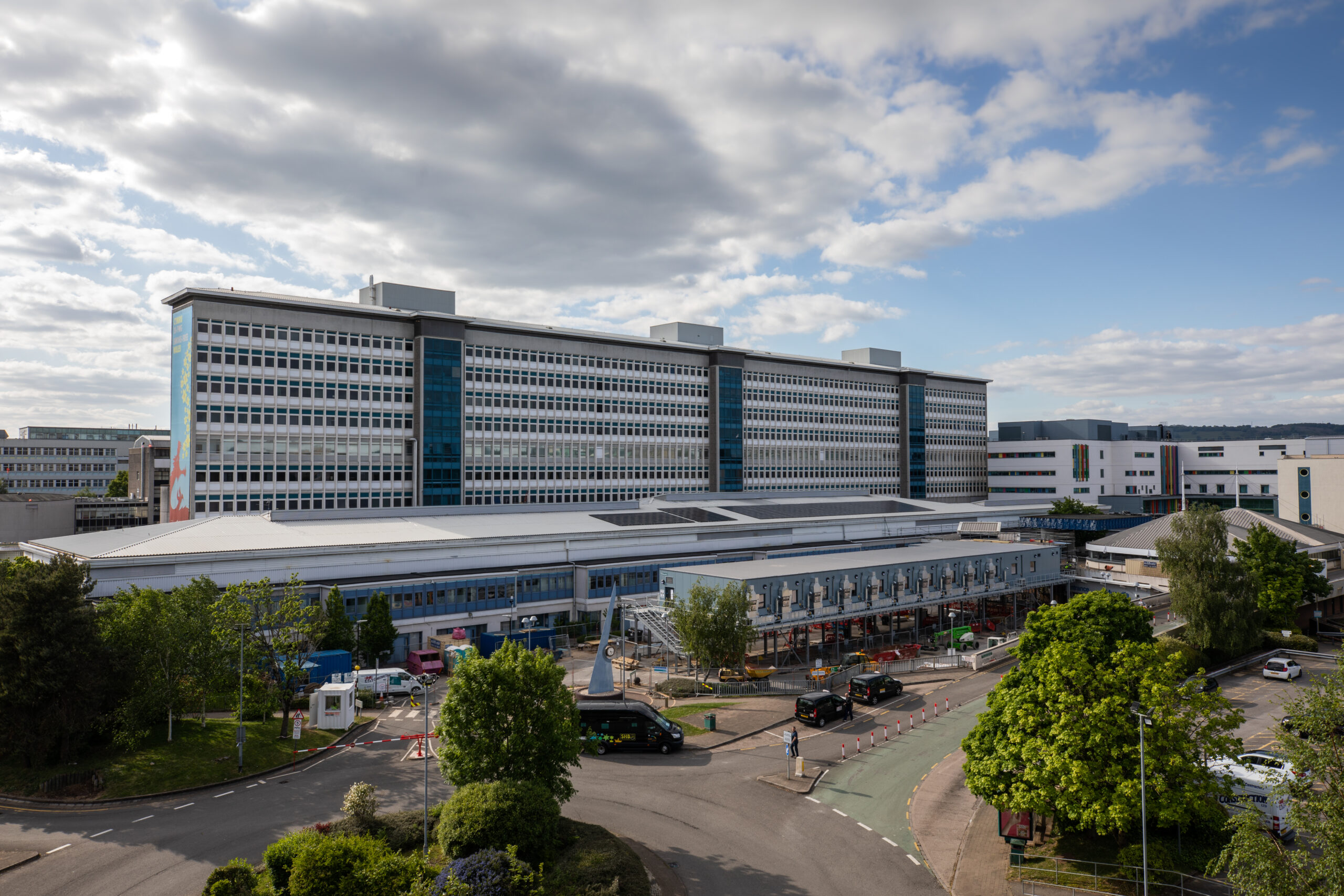In common with the rest of the UK, Wales was hit hard by the first wave of the Coronavirus pandemic but thanks to the forward-thinking actions of the Team at Cardiff and Vale Hospital, they moved quickly to create specialist healthcare provision.
In the early stages of the pandemic, COVID-19 had been classified as a High Consequence Infectious Disease (HCID) which very few hospitals are equipped to deal with. Examples of HCID include Ebola, SARS, MERS, Hantavirus, Avian Influenza, all of which require specialist care and technically complex facilities.
When the first ‘Stay at Home’ directive was issued, only 15 beds, across 4 hospitals capable of dealing with any form of HCID existed across the UK. With COVID-19 infections rising, the Trust decided to act.
Although the Trust had identified the merits of a ‘Negative Pressure Isolation Facility’ long before the pandemic, they recognised the the risk that many hospitals could be overwhelmed by COVID patients and so took the decision to procure a specialist facility to alleviate the anticipated pressures.
With the decision made, there was still much work to do. The Cardiff and Vale site has been developed over the years such that there was only one available location for a new facility – directly above the main entrance to the hospital.
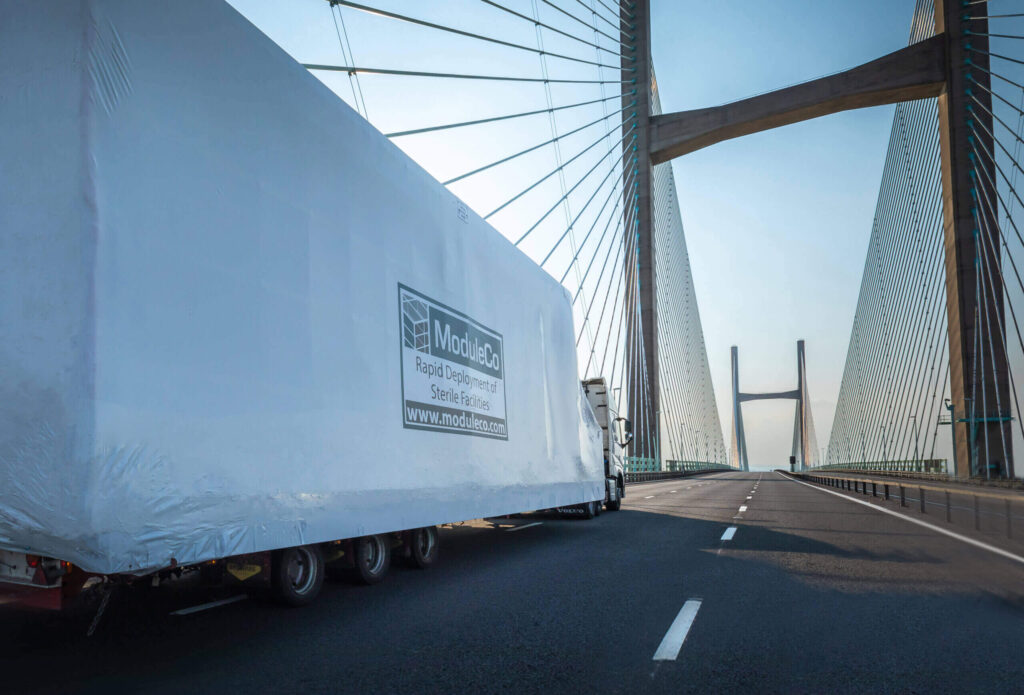
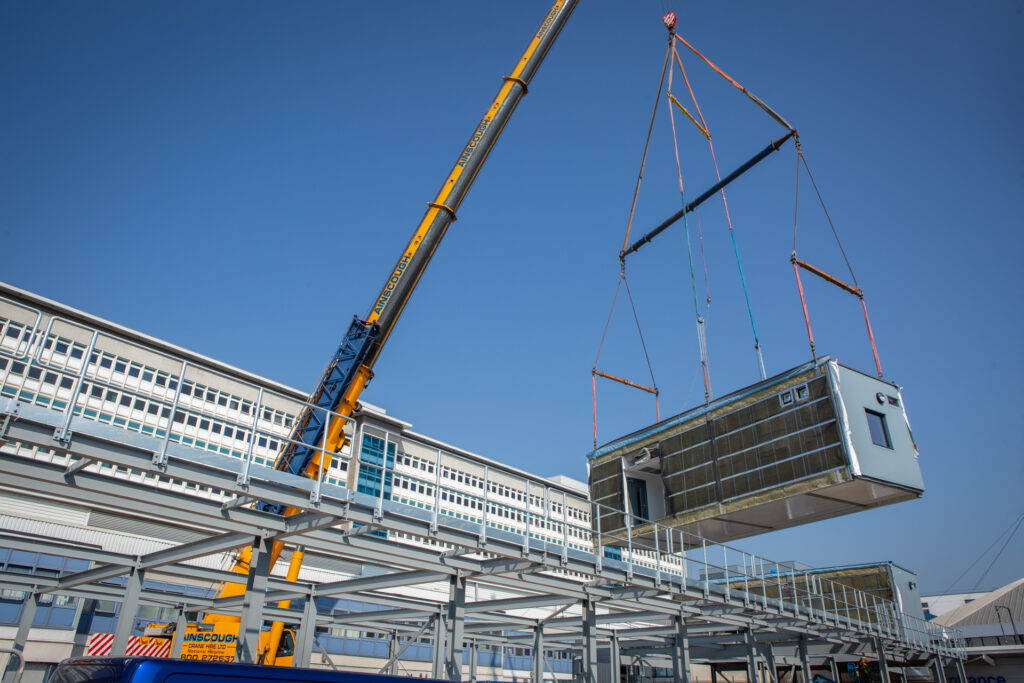
The combination of the location, urgent timescale and practical issues of working safely during the first lockdown, presented a truly unique challenge. We were asked to design, build and deliver this technically complex, specialist facility in just 8 weeks with no disruption to the busy day-to-day activities of the hospital.
Successfully delivering complex and specialist critical care facilities into difficult-to-access locations is testament to the benefits of off-site construction.
Traditional construction methods, with their high levels of site-performed activities, result in longer periods of disruption to already-busy hospital sites.
With the COVID pandemic becoming increasingly serious, every day was vital and required the Trust and ModuleCo teams to work in close partnership with effective decision-making processes.
90% of the facility was completed off-site at the ModuleCo assembly facility. The podiums were then put in place above the main entrance of the hospital to raise it to first floor level, leaving the Trust to supply power, medical gas services and potable water for the work to be completed.
8 weeks after order and 10 weeks in total after the Trust’s first contact, ModuleCo had successfully delivered a Negative Pressure Isolation facility, attached to a High Dependency Unit, situated above the Main Entrance of the hospital, capable of safely caring for HCID patients.
The Cardiff and Vale Trust team described the challenges presented by the timescales, location and pandemic as constituting a nigh-on impossible mission.
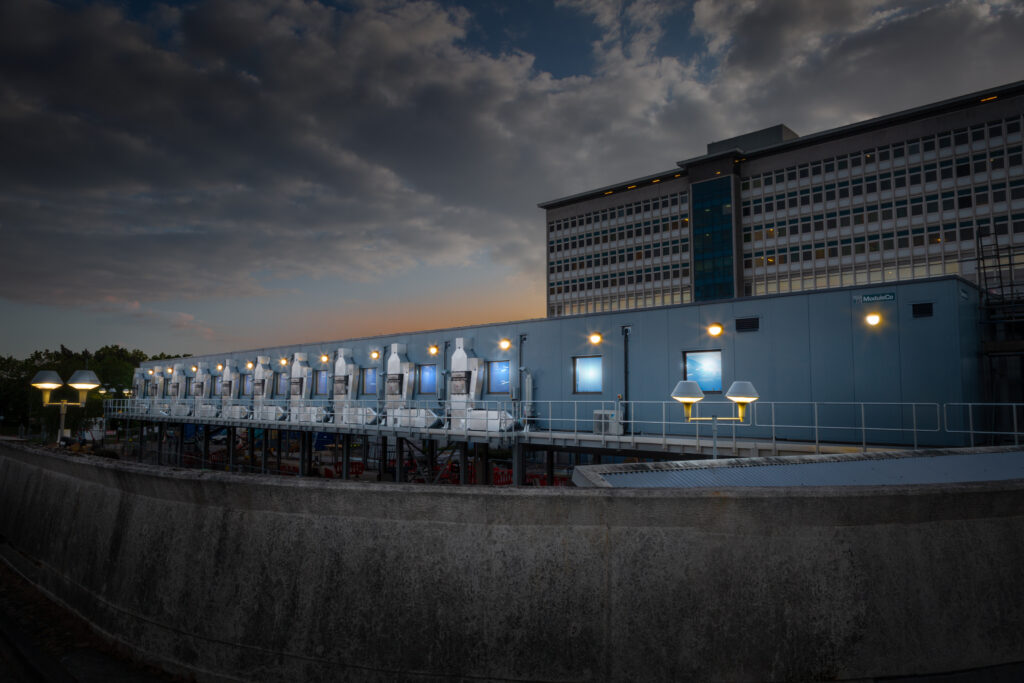
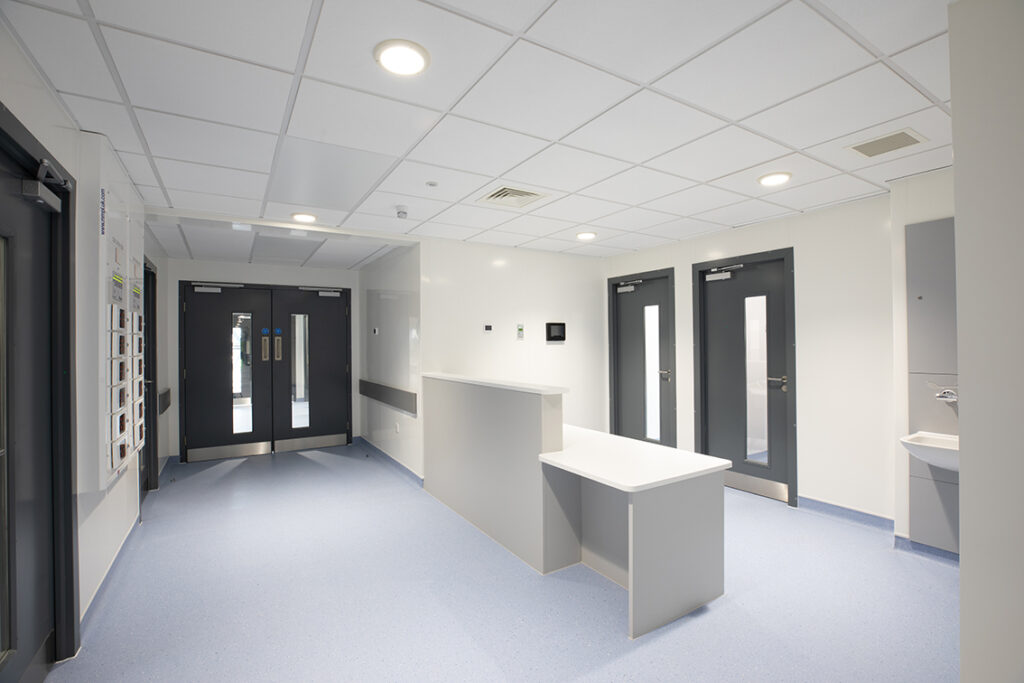
At the same time, ModuleCo were working to deliver an almost identical facility to Norwich and Norfolk University Hospital, intended to provide surge capacity should London hospitals be overwhelmed by COVID-19 patient admissions.
Our experience with Norwich enabled us to respond instantly and in a matter of days, we had researched and created all of the components and technical data, allowing us to deliver the Cardiff and Vale facility, on-time, on-budget and with minimal disruption to the hospital or its staff.
We designed a 6,700ft2 standalone Isolation Ward, offering 10 single occupancy, en-suite rooms alongside ancillary support spaces for clinical and nursing staff.
Designed to meet the specifications for HCID units, each patient room is supported by its own independent ventilation plant and safe change HEPA filter extract unit.
The dedicated AHU per room provides a minimum of 10 air changes per hour and is coupled with a negative pressure regime that is protected by a ventilated entrance lobby.
In each lobby the dedicated supply/extract is mechanically interlocked to ensure there is no risk of a positive pressure regime arising should there be an AHU failure.
At the height of the first UK Lockdown, our combined work with he Cardiff and Vale and Norwich and Norfolk Trusts more than doubled the UK’s HCID capacity overnight from 15 to 35 beds.
